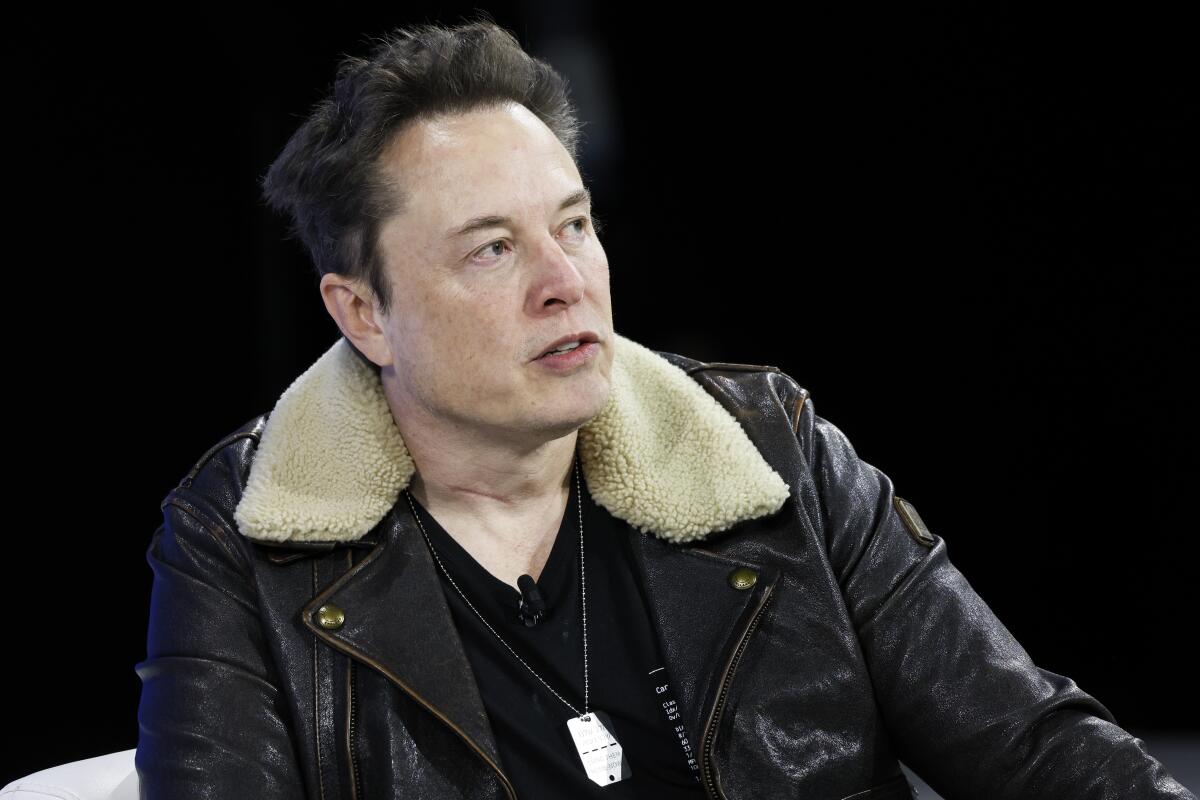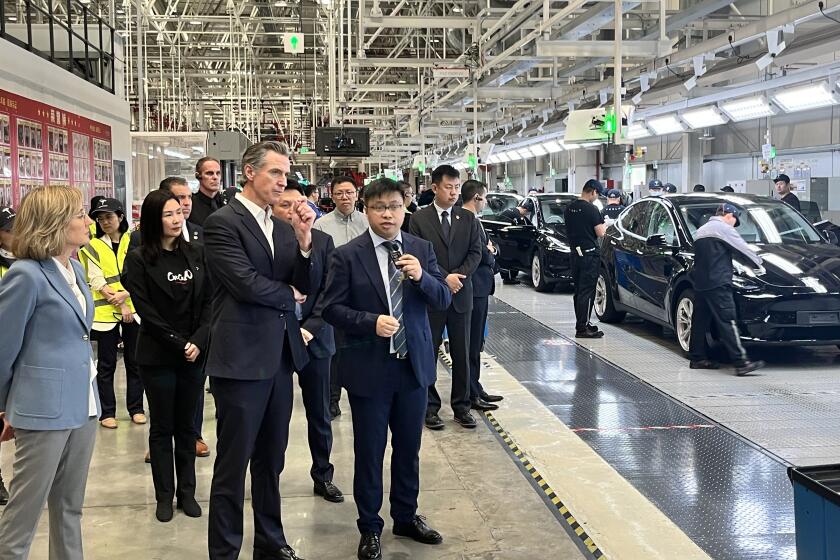Tesla’s response to the DMV’s false-advertising allegations: What took so long?

- Share via
Seven years after Tesla released the automated driving feature it calls Full Self-Driving, the California Department of Motor Vehicles is pressing accusations of false advertising, with serious implications for the electric car maker.
Tesla is defending itself by saying, in effect, that the DMV let the company slide for so many years, the case no longer has legal standing. Plus, the company, run by Chief Executive Elon Musk, says the DMV is violating its free speech rights under the U.S. Constitution’s 1st Amendment.
The DMV “has been aware that Tesla has been using the brand names Autopilot and Full Self-Driving Capability since Tesla started using those names in 2014 and 2016 respectively,” the company said in a response filed in a state administrative court Friday.
The company “relied upon [the DMV’s] implicit approval of these brand names” and “the DMV chose not to take any action against Tesla or otherwise communicate to Tesla that its advertising or use of these brand names was or might be problematic,” the response notice states.
As to free speech, Tesla claims that the state’s false advertising rules on autonomous vehicles “impermissibly restrict constitutionally protected speech that is truthful and nonmisleading.”
The DMV launched its investigation in May of 2021. It filed its administrative complaint in July 2022 and spent the next year researching the case before requesting trial date hearing.
In a motion filed Nov. 20, the DMV accused Tesla of misleading automotive customers with claims about Autopilot and Full Self-Driving with numerous false statements. One example: “The system is designed to be able to conduct short and long distance trips with no action required by the person in the driver’s seat.” Whatever the design intent, neither Autopilot nor Full Self-Driving is yet able to do a full trip with no driver interaction.
Musk has made wilder claims over the years, but usually has hedged them with words like “expect” and “hope.”
Gavin Newsom is mesmerized by the growth of driverless cars. Other California Democrats, not so much
The governor’s effusive comments about autonomous vehicles come as the technology is roiling California cities, with lawmakers demanding change.
Several customers have sued Tesla after spending $8,000 to $15,000 for a feature called Full Self-Driving that, most independent driverless car experts agree, cannot drive itself.
Should the DMV win its case, its legal motion says, Tesla’s California manufacturer’s license could be revoked, and the company could be required to pay restitution to “persons or institutions who have suffered financial loss or damage.”
Meanwhile, several years-long investigations by the National Highway Traffic Safety Administration on Autopilot and Full Self-Driving safety concerns continue to drag on, including inquiries into vehicular deaths and crashes into police cars and ambulances. Thus far, NHTSA acting administrator Ann Carlson and her boss, Department of Transportation Secretary Pete Buttigieg, have declined to talk about the investigations and the amount of time they’re taking to complete.
More to Read
Inside the business of entertainment
The Wide Shot brings you news, analysis and insights on everything from streaming wars to production — and what it all means for the future.
You may occasionally receive promotional content from the Los Angeles Times.












